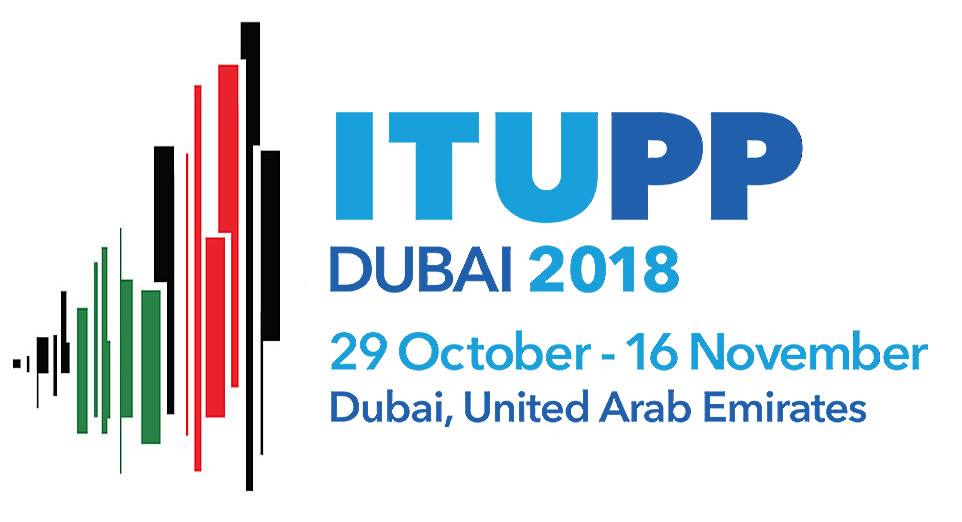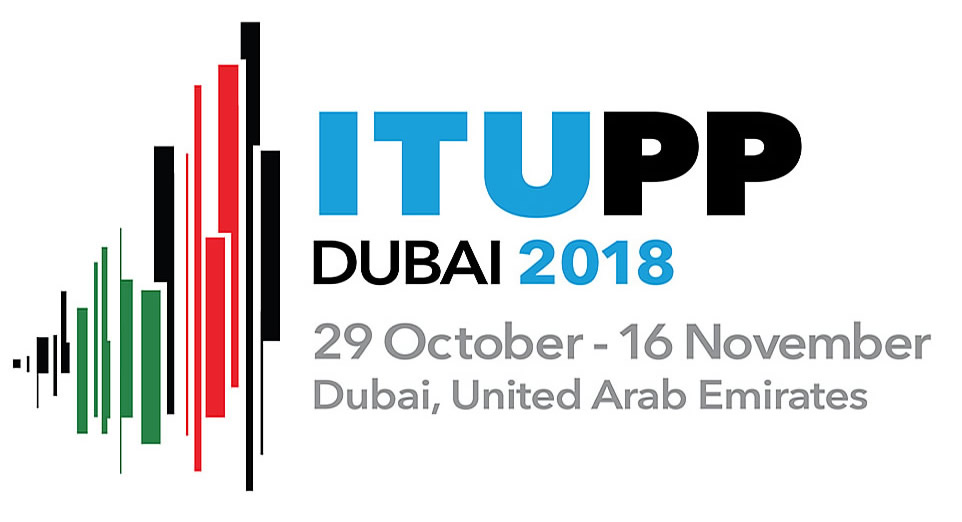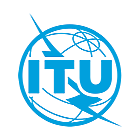ITU elections
The Plenipotentiary Conference in Dubai, (PP-18) will be electing the ITU leadership team for the coming four years.
Unlike other UN agencies, which have just one elected head, the ITU Plenipotentiary Conference elects five top officials: the Secretary-General and Deputy Secretary-General, and the Directors of the Bureaux of the three Sectors: the Radiocommunication Bureau (BR), the Telecommunication Standardization Bureau (TSB), and the Telecommunication Development Bureau (BDT).
Under the rules laid out in the ITU Constitution, elected officials may serve a maximum of two four-year terms in any elected post. There is no restriction on those already having served in an elected post from putting forward a candidature for a different elected post.
To bring transparency to the campaigns, candidacies for the five posts will be closed at 23:59 (Geneva time) on the 28th day prior to the conference: Monday, 1 October 2018. The election process will begin on Thursday 1November, commencing with the election of the Secretary-General.
Candidates to posts of elected officials
A full list of candidates for elected posts can be found here. Biographies and interviews with all candidates can be found here.
Other elections
The 2018 Plenipotentiary Conference will also elect the Member States of the ITU Council and the members of the Radio Regulations Board.
The ITU Council, which comprises 48 Member States, serves as the governing body of ITU in between four-yearly Plenipotentiary Conferences, and meets every year in Geneva, even in years where a Plenipotentiary Conference will be held.
The Council ensures constant oversight of the Union’s activities, policies and strategies, manages Working Groups on specific topics set up by Plenipotentiary Conferences or by the Council itself, and prepares the ITU Strategic and Financial Plans for presentation to the Plenipotentiary.
Each of the five ITU administrative regions is entitled to a number of Council seats, as follows: • Region A —The Americas (9 seats) • Region B — Western Europe (8 seats) • Region C — Eastern Europe and Northern Asia (5 seats) • Region D — Africa (13 seats) • Region E — Asia and Australasia (13 seats).
The total number of Council seats is based on 25% of the number of ITU Member States, with number of seats per region allocated on the basis of the total number of ITU Member States from each of the five regions. The number of Council seats was increased from 46 to 48 by the 2010 Plenipotentiary Conference, to reflect ITU’s growing membership (now 193 Member States).
There is no restriction on the number of countries which can put forward a candidature for ITU Council, and no restriction on the number of terms a country can serve on ITU Council. The countries which have served the most terms on Council since 1947 (when ITU Council was formally created by the Plenipotentiary Conference in Atlantic City) are: Brazil, China, France, Italy, Japan, Russia, Switzerland, and the United States.
The Radio Regulations Board (RRB) is a part-time body comprising 12 members representing ITU’s five regions (The Americas, Western Europe, Eastern Europe and Northern Asia, Africa, and Asia/Australasia).
It is the RRB’s job to approve the Rules of Procedure in application of the Radio Regulations, including those related to the assignment and use of radio frequencies and the use of satellite orbits. It also provides advice to World Radiocommunication Conferences and Radiocommunication Assemblies.
The right to vote
In order to have the right to vote, Member States must be parties to the Constitution and Convention of ITU and must not be in arrears in their payments to the Union.
Member States also need to have their ‘credentials’ in order. Credentials are documents which confer full powers to the PP-18 representative of the Member State to vote and to sign the Final Acts of the conference. Member State credentials must be signed by the Head of State, Head of Government, or Minister of Foreign Affairs.
The voting process for elected officials
Elections to the post of ITU elected officials are held by secret ballot. Elections are normally carried out in three stages: first, the election of the Secretary-General; then the election of the Deputy Secretary-General; and then the election of the Directors of the Bureaux of the three Sectors. In a case where there is only one candidate for the post of Secretary General or Deputy Secretary-General, the elections are held in two stages only: first, election of the Secretary-General and Deputy Secretary-General; then, election of the three Directors. Elections for the posts of the three Directors run concurrently.
To be elected, each candidate must secure a necessary majority. In accordance with the ITU Rules of Procedure, the required majority consists of more than half the delegations present and eligible to vote. Invalid and blank ballots are not calculated in the majority. A ballot is considered invalid if it has been marked in any way other than to indicate the choice of candidate by the crossing of the requisite box.
If no candidate obtains the necessary majority in the first ballot, then one or (if required) two further ballots will be held after successive intervals of at least six hours from the announcement of the results, unless otherwise decided by the Conference.
If, after the third ballot, no candidate has obtained the necessary majority, then following an interval of at least twelve hours (unless otherwise decided by the Conference) a fourth ballot is held for the two candidates who secured the largest number of votes at the third ballot.
If the fourth ballot results in a tie between the two candidates, the eldest of the candidates still in contention will be declared elected.
Date of taking of office
The Secretary-General, the Deputy Secretary-General, and the Directors of the Bureaux take up their duties on the dates determined by the Plenipotentiary Conference at the time of their election and remain in office until dates determined by the following Plenipotentiary Conference. It is expected that the new ITU management team will take up its duties from 1 January, 2019, unless otherwise decided by the Conference. Under the current rules, all elected officials are eligible for re-election only once in any given post.
The voting process for RRB Membership
Voting for membership of the Radio Regulations Board is normally conducted through a single round of voting, with members elected to the Board on the basis of a regional allocation of seats: two seats each for regions A, B, and C, and three seats each for regions D and E. The number of seats (12) is based on 6% of the total number of ITU Member States, and the number of seats per region is allocated on the basis of the total number of ITU Member States from that region.
Voting is on a single ballot, relative majority basis, i.e. those with the highest number of votes within the limits of the number of seats to be filled for each region will be elected for the period 2019-2022 inclusive.
A Special Ballot will be held after an interval of at least six hours from the announcement of the results (unless otherwise determined by the conference) only if there is a tie between several candidates from the same administrative region and the number of tied candidates is greater than the number of seats remaining to be filled for the region concerned. The Special Ballot decides only between the tied candidates.
If the result remains tied, the chairman will name the eldest of the candidates as the winner.
The voting process for ITU Council Membership
Voting for Council membership is normally conducted through a single round of voting. The countries obtaining the highest number of votes for each regional allocation (i.e., the top eight countries for Europe, the top 13 countries for Africa, and so on) will be elected for the period 2019-2022 inclusive.
In the case of a tie for places in each regional allocation, a second round of voting (Special Ballot) is held involving only the countries concerned, at an interval of at least six hours after the first round, unless otherwise decided by the conference. If the vote remains tied after the second round of voting, the PP-18 Chair will draw lots to determine the winning country or countries.
For more information:



